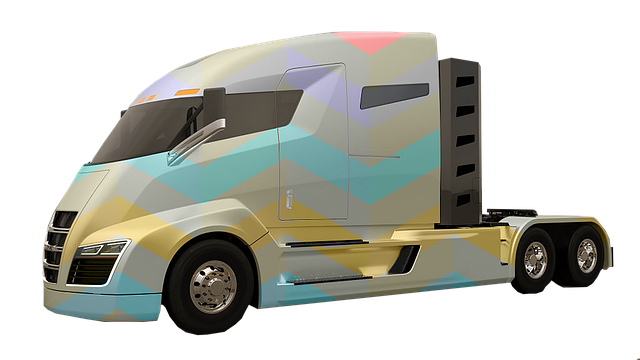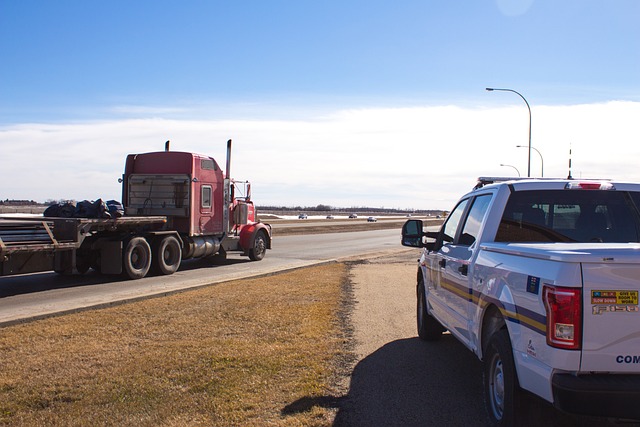Looking to register your car in California? This comprehensive guide walks you through every step, from understanding key requirements to submitting your application. We break down the process into simple sections: gather essential documents, verify your vehicle’s VIN (using a reliable VIN verifier), select the right registration type, and pay fees. Get ready to navigate California’s car registration process with ease.
- Understand California Car Registration Requirements
- Gather Necessary Documents for Vehicle Registration
- Verify Vehicle's VIN (Vehicle Identification Number)
- Choose an Appropriate Registration Type in California
- Submit Application and Pay Fees for Car Registration
Understand California Car Registration Requirements

Before registering your car in California, it’s crucial to understand the state’s specific requirements for vehicle identification number (VIN) verification. California requires a comprehensive and accurate VIN inspection as part of the registration process, ensuring that all vehicles on its roads meet safety and environmental standards. This process involves checking various components of your car, including its engine, emissions system, lights, and other critical parts.
One effective way to ensure compliance is through mobile vin verification or mobile vin inspection services. These services bring the inspection process directly to you, allowing you to get your vehicle checked in convenient locations. With a simple and efficient vin inspection, you can streamline the registration process, save time, and avoid potential issues with California’s Department of Motor Vehicles (DMV).
Gather Necessary Documents for Vehicle Registration

Before you begin the registration process, it’s crucial to gather all the essential documents for your vehicle. In California, you’ll need a valid car insurance policy, a completed Application for Title and Registration (DMV Form 2618), and proof of identity with a current California driver’s license or state-issued ID card. Additionally, the Vehicle Identification Number (VIN) verifier plays a vital role in this process. You can use a mobile VIN verifier to quickly and accurately retrieve your vehicle’s history, ensuring all legal requirements are met.
This includes checking for any outstanding recalls, salvage titles, or other issues that could affect registration. Once you have these documents prepared, you’re ready to take the next steps toward registering your car in California.
Verify Vehicle's VIN (Vehicle Identification Number)

Before you begin the registration process, it’s crucial to verify your vehicle’s VIN (Vehicle Identification Number). This unique 17-character code is a fundamental piece of information that links directly to your car’s history and specifications. A reliable vin verifier, like a mobile vin inspection service, can help ensure accuracy by cross-referencing the number against vast databases, providing you with detailed vehicle history including any prior ownership, accidents, or outstanding issues.
Using a mobile vin verification tool makes this crucial step convenient and efficient. Unlike traditional methods that might involve visits to dealerships or specialized facilities, a mobile vin verifier allows you to complete the process from the comfort of your home or even while you’re on the go. This modern approach streamlines registration, saving time and effort while ensuring your vehicle’s history is accurately checked.
Choose an Appropriate Registration Type in California

When registering your car in California, understanding the different registration types is crucial. The state offers various options tailored to specific vehicle categories and use cases. For instance, private passenger vehicles typically require a standard registration, while commercial or specialized vehicles may necessitate unique classifications. One essential step in this process is using a VIN verifier (Vehicle Identification Number) to ensure the vehicle’s authenticity and history are accurate.
California’s Department of Motor Vehicles (DMV) facilitates this verification through various methods, including mobile VIN verification and vin inspection. These services enable you to confirm the vehicle’s status, identify any potential issues, and complete the registration process more efficiently. Whether you’re opting for a traditional or mobile VIN inspection, having accurate information upfront streamlines your car registration in California.
Submit Application and Pay Fees for Car Registration

After gathering all the necessary documents and ensuring your vehicle meets California’s requirements, it’s time to submit your application for car registration. This typically involves filling out Form DV-140 (Application for Registration or Re-registration of a Motor Vehicle), which you can obtain from the California Department of Motor Vehicles (DMV) website or by visiting a local DMV office. Along with the completed form, you’ll need to pay the required fees for registration and title. The specific amounts vary based on your vehicle’s type and age, so be sure to check the current rates on the DMV website before submitting your application.
One crucial step in this process is ensuring accurate vehicle identification number (VIN) verification. You can utilize a mobile VIN verifier app or service to cross-reference your car’s VIN with official databases, confirming its authenticity and history. This is an important step not just for registration but also for ensuring you’re aware of any previous owners, maintenance records, and potential recalls associated with your vehicle. Once your application and payment are processed, the DMV will issue a registration certificate, which must be displayed on your vehicle at all times.
Registering a car in California is a straightforward process once you understand the requirements and gather the necessary documents. By verifying your vehicle’s VIN using reliable tools, ensuring accurate information, and selecting the right registration type, you can efficiently complete the application and pay the associated fees. Remember to keep your registration up-to-date to avoid any legal issues on California’s roads.
